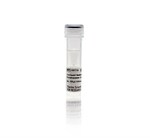Search Thermo Fisher Scientific
SureQuant™ Phosphopeptide Suitability Standards





SureQuant™ Phosphopeptide Suitability Standards
The SureQuant Multipathway Phosphopeptide Standard contains an optimized mixture of 131 isotopically labeled phosphopeptides to simultaneously monitor and quantitate phosphorylation signaling. The SureQuant Phosphopeptide Suitability Standard contains a mixture of 20 isotopically labeled phosphopeptides with increasing hydrophobic properties for LC optimization and monitoring of LC-MS/MS system performance. When used together, the standards help ensure optimal instrument performance and sample assessment for phosphorylation events.
| Description | SureQuant™ Multipathway Phosphopeptide Standard (100 fmol/μL) |
| Concentration | 100 fmol/μL |
| Quantity | 200 μL |
| Unit Size | 200 µL |
| Description | SureQuant™ Phosphopeptide Suitability Standard (500 fmol/μL) |
| Concentration | 500 fmol/μL |
| Quantity | 50 μL |
| Unit Size | 50 µL |
| Catalog Number | Specifications | Unit Size | Concentration | Price (EUR) | Quantity | ||||||||||||||||||||||||||||||||||||||||||||||||||||||||||||||||||||||||||||||||||||||||||||||||||||||
|---|---|---|---|---|---|---|---|---|---|---|---|---|---|---|---|---|---|---|---|---|---|---|---|---|---|---|---|---|---|---|---|---|---|---|---|---|---|---|---|---|---|---|---|---|---|---|---|---|---|---|---|---|---|---|---|---|---|---|---|---|---|---|---|---|---|---|---|---|---|---|---|---|---|---|---|---|---|---|---|---|---|---|---|---|---|---|---|---|---|---|---|---|---|---|---|---|---|---|---|---|---|---|---|---|---|---|---|
| A51745 | 200 µL | 100 fmol/μL | 1 170,00 | ||||||||||||||||||||||||||||||||||||||||||||||||||||||||||||||||||||||||||||||||||||||||||||||||||||||||
| |||||||||||||||||||||||||||||||||||||||||||||||||||||||||||||||||||||||||||||||||||||||||||||||||||||||||||
| A51746 | 50 µL | 500 fmol/μL | 241,15 Online price 265,00 | ||||||||||||||||||||||||||||||||||||||||||||||||||||||||||||||||||||||||||||||||||||||||||||||||||||||||
| |||||||||||||||||||||||||||||||||||||||||||||||||||||||||||||||||||||||||||||||||||||||||||||||||||||||||||
The specific phosphopeptides in the SureQuant Multipathway Phosphopeptide Standard have been chosen to cover biologically relevant phosphorylation sites for 89 key proteins from seven different signaling pathways including EGFR/HER, RAS-MAPK, PI3K/AKT/mTOR, AMPK, death/apoptosis, and stress (p38/SAPK/JNK). For optimal results, MS sample preparation should include phosphopeptide enrichment, with the standard spiked in before MS sample preparation (1 pmol) or after phosphopeptide enrichment (0.8 pmol). The ability to simultaneously monitor and quantitate these targets in a single sample is a powerful tool for assessment of normal and abnormal signaling pathway activity.
The phosphopeptides selected for the SureQuant Phosphopeptide Suitability Standard represent relevant proteins from key signaling pathways that include serine, threonine, and tyrosine phosphorylation. The 20 phosphopeptides have a wide range of retention times and have been designed for use with phosphopeptide samples to assess system performance and to better enable prediction of peptide retention times to maximize phosphopeptide identifications.
Features include:
• Optimized—validated mixture of 131 HeavyPeptide AQUA Basic phosphorylated peptides (SureQuant Multipathway standard) or 20 HeavyPeptide AQUA Basic phosphopeptides (SureQuant Suitability standard)
• Multiplex—suitable for relative quantitation of phosphorylationevents for 89 key proteins in seven cellular signaling pathways (SureQuant Multipathway standard)
• Predictive—range of peptides with increasing hydrophobic properties for method optimization and calculation of peptide retention times
• Monitoring—excellent QC assay tool for quality assessment of LC and MS instrument performance (SureQuant Suitability standard)
• Convenient—provided in a ready-to-use liquid format
Applications:
• Standard for data-dependent acquisition (DDA)
• Standard for targeted MS (e.g., SRM, PRM)
• Optimization of LC parameters
• Identification of total peptide elution window
• Optimization of MS parameters
For optimal results, MS sample preparation should include phosphopeptide enrichment. We recommend use of the EasyPep Maxi MS Sample Prep Kit (Cat. No. A45734) combined with the High Select Phosphopeptide Enrichment Kits (Cat. No. A32992, A32993, or A52283) for sample preparation. Standardized methods and data process templates are provided for streamlined data acquisition and analysis.